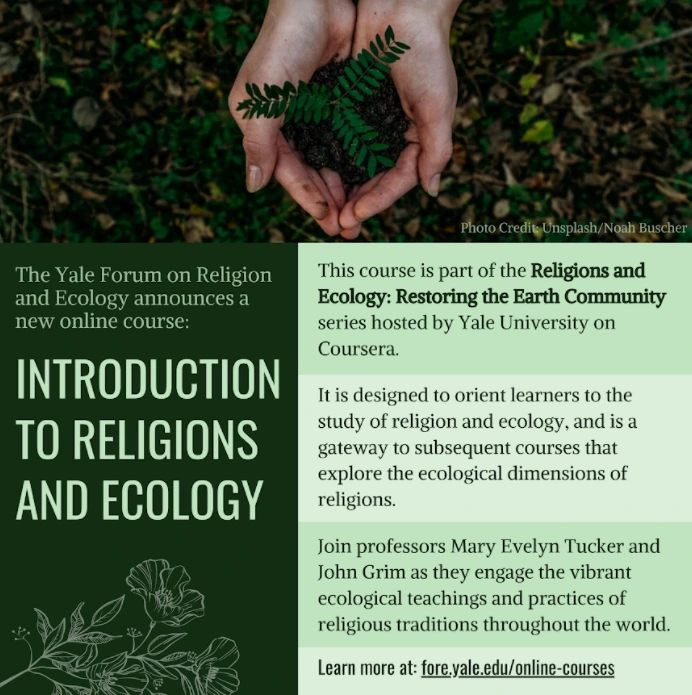About this Specialization
Why do religions matter when we talk about environmental problems and solutions?
- The environmental crisis is not simply a political, economic, or technological problem; it is a moral and spiritual call to long-term change.
- Religious narratives resonate with many people —85% of the world’s population belongs to religious communities.
- Religions have educational institutions worldwide that can inspire people for an ecologically just future.
- Religious structures and sacred spaces provide a symbolic and practical context for aligning humans with nature.
- Religions have financial assets that can be used for transformative change, such as divestment and reinvestment.
To whom will these courses appeal?
- Lifelong learners curious to know more about world religions and ecology
- Environmental professionals eager to deepen the discourse of environmental protection and conservation
- Those working with non-profit organizations and NGOs on issues of ecological justice, especially where minority communities are adversely affected
- Those involved in education — College and high school students looking for a broader view of religion and spirituality, teachers developing curriculum,
- Those involved in the world’s religions — Religious leaders and laity who want to know how they can contribute to the interreligious dialogue on environmental issues; Religious communities interested in building engaging projects, such as the restoration of local bioregions.


